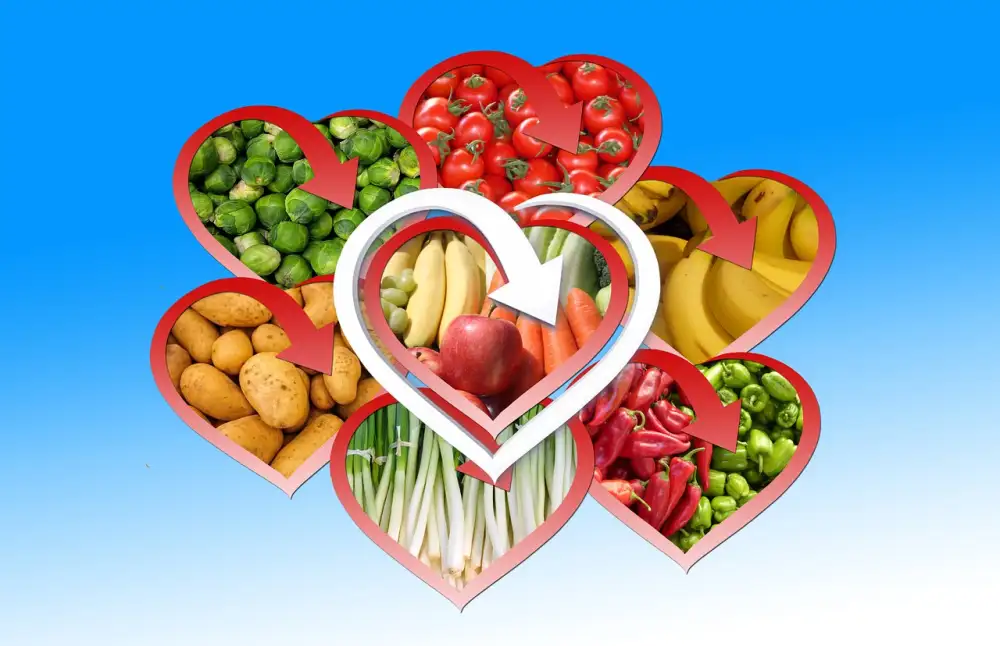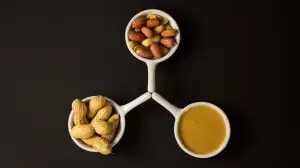Are Sprouted Potatoes Safe to Eat? Unveiling the Truth About Consuming Sprouted Spuds

- Understanding the Sprouting Process in Potatoes
- Potential Health Risks Associated with Sprouted Potatoes
- Factors to Consider Before Consuming Sprouted Potatoes
- Proper Storage and Handling Techniques to Prevent Sprouting
- Tips for Safely Consuming Sprouted Potatoes
- Delicious Recipes to Make the Most of Sprouted Potatoes
Sprouted potatoes are a common sight in many kitchens, but have you ever wondered if they are safe to eat? While sprouting is a natural process that occurs when potatoes are stored for an extended period, it can also lead to potential health risks. In this article, we will delve into the truth about consuming sprouted spuds and provide you with valuable information to make informed decisions about their safety. So let's dig in and uncover the facts about sprouted potatoes!
Understanding the Sprouting Process in Potatoes
Potatoes are a staple in many cuisines around the world, but what happens when those spuds start to sprout? Understanding the sprouting process in potatoes is key to determining their safety for consumption.
When potatoes are stored under certain conditions, they have the potential to sprout. This occurs due to the presence of natural hormones within the potato tubers. As these hormones accumulate over time, they trigger the growth of new shoots and roots.
The sprouting process begins with small buds forming on the surface of the potato. These buds then develop into long white or greenish shoots. While this may seem like a harmless occurrence, it is important to note that these sprouts can indicate changes happening within the potato itself.
As potatoes sprout, they undergo chemical changes that can affect their taste, texture, and nutritional content. The starches present in potatoes are converted into sugars during sprouting, which can result in a sweeter flavor but also a softer texture.
Additionally, as these shoots grow longer, they produce a toxic compound called solanine. Solanine is naturally present in all parts of the potato plant but is particularly concentrated in green areas and sprouts. Consuming high levels of solanine can lead to symptoms such as nausea, vomiting, diarrhea, and even neurological effects in severe cases.
It is important to note that not all sprouted potatoes contain dangerous levels of solanine. The concentration of solanine varies depending on factors such as storage conditions and length of sprouting. However, it is always better to err on the side of caution when it comes to consuming sprouted potatoes.
In the next section, we will explore potential health risks associated with consuming sprouted potatoes and discuss factors to consider before making a decision about their consumption.
Potential Health Risks Associated with Sprouted Potatoes
While potatoes are a staple in many diets, consuming sprouted potatoes can pose certain health risks. When potatoes sprout, they undergo chemical changes that can lead to the production of solanine, a toxic compound. Solanine is naturally present in potatoes, but its levels increase significantly when the potato starts to sprout.
Excessive consumption of solanine can cause various symptoms such as nausea, vomiting, diarrhea, headaches, and even neurological effects like confusion and hallucinations. In severe cases, it can lead to respiratory issues and organ damage.
It's important to note that not all sprouted potatoes contain high levels of solanine. The amount of solanine produced depends on several factors including the length of sprouting, storage conditions, and individual potato variety. However, it's better to err on the side of caution and avoid consuming heavily sprouted potatoes.
To minimize the risk of ingesting excessive amounts of solanine, it's recommended to remove any green or sprouted areas before cooking or eating the potato. These areas tend to have higher concentrations of solanine. Additionally, boiling or baking potatoes at high temperatures can help reduce solanine levels further.
By understanding the potential health risks associated with sprouted potatoes and taking necessary precautions when handling them, you can make informed decisions about their consumption and prioritize your well-being.
Factors to Consider Before Consuming Sprouted Potatoes
1. Length of Sprouting: The longer a potato has sprouted, the higher the levels of solanine, a toxic compound. If the sprouts are small and just starting to form, they can be removed before consumption. However, if the sprouts are large and have turned green, it is best to discard the potato.
2. Overall Condition: Inspect the potato for signs of decay or rotting. If there are soft spots or a foul odor, it is an indication that the potato is no longer safe to eat, regardless of whether it has sprouted or not.
3. Individual Sensitivity: Some individuals may be more sensitive to solanine than others. If you have experienced adverse reactions in the past after consuming sprouted potatoes, it is advisable to avoid them altogether.
4. Cooking Method: Proper cooking methods such as boiling, baking, or frying can help reduce solanine levels in sprouted potatoes. However, it is important to note that cooking does not eliminate all toxins completely.
5. Personal Preference: Ultimately, the decision to consume sprouted potatoes lies with personal preference and risk tolerance. If you feel uncomfortable eating them or are uncertain about their safety, it is best to err on the side of caution and choose alternative options.
By considering these factors before consuming sprouted potatoes, you can make an informed decision about whether they are suitable for your consumption or should be avoided altogether.
Proper Storage and Handling Techniques to Prevent Sprouting
Proper storage and handling techniques are essential in preventing potatoes from sprouting. Here are some tips to keep your spuds fresh and sprout-free:
1. Store in a cool, dark place: Potatoes should be kept in a cool, well-ventilated area away from direct sunlight. A temperature range of 45-50°F (7-10°C) is ideal for preventing sprouting.
2. Avoid moisture: Moisture can accelerate the sprouting process. Make sure potatoes are completely dry before storing them. Additionally, avoid storing them near areas with high humidity, such as the refrigerator or sink.
3. Separate from other produce: Potatoes release ethylene gas, which can cause other fruits and vegetables to ripen faster and potentially spoil. Keep them separate from other produce to prevent premature spoiling.
4. Handle with care: Rough handling can damage potatoes, leading to bruising and increased likelihood of sprouting. Be gentle when moving or storing them to minimize damage.
5. Remove any sprouted potatoes promptly: If you notice any sprouts on your potatoes, remove them immediately to prevent the spread of growth to other potatoes.
By following these storage and handling techniques, you can extend the shelf life of your potatoes and reduce the chances of them sprouting prematurely.
Tips for Safely Consuming Sprouted Potatoes
1. Cut off the sprouts: If you decide to eat sprouted potatoes, make sure to cut off any visible sprouts before cooking. This will help reduce the levels of solanine, a toxic compound found in the sprouts.
2. Check for rot or mold: Inspect the potato thoroughly for any signs of rot or mold. Discard any potatoes that show these signs as they can be harmful if consumed.
3. Cook thoroughly: Cooking sprouted potatoes at high temperatures can help break down the toxins present in them. Boiling, baking, or frying are good options to ensure they are cooked through.
4. Store properly: To prevent further sprouting, store potatoes in a cool, dark place with good ventilation. Avoid storing them near onions or fruits as they release ethylene gas, which promotes sprouting.
5. Use within reason: While it's safe to consume small amounts of sprouted potatoes occasionally, it's best to limit their consumption and prioritize fresh, non-sprouted ones for regular use.
By following these tips, you can enjoy sprouted potatoes safely while minimizing potential health risks associated with consuming them.
Delicious Recipes to Make the Most of Sprouted Potatoes
While sprouted potatoes may not be suitable for all culinary endeavors, there are still plenty of ways to enjoy their unique flavor and texture. Here are a few delicious recipes that will help you make the most of your sprouted spuds:
1. Roasted Sprouted Potato Wedges: Cut the sprouted potatoes into wedges, toss them with olive oil, salt, pepper, and your favorite herbs or spices. Roast them in the oven until crispy on the outside and tender on the inside. Serve as a side dish or snack.
2. Sprouted Potato Hash: Dice the sprouted potatoes and sauté them with onions, bell peppers, and garlic until golden brown. Add cooked bacon or sausage for extra flavor. Top with a fried egg for a hearty breakfast option.
3. Sprouted Potato Soup: Boil diced sprouted potatoes in vegetable or chicken broth until tender. Blend half of the mixture to create a creamy base, then add back in the remaining chunks for texture. Season with herbs and spices of your choice.
4. Sprouted Potato Salad: Boil whole sprouted potatoes until fork-tender, then cut them into bite-sized pieces. Toss with a tangy dressing made from mayonnaise, mustard, vinegar, and herbs like dill or parsley. Add chopped celery, red onion, and hard-boiled eggs for extra crunch.
Remember to remove any green parts or eyes before using sprouted potatoes in these recipes to minimize potential health risks associated with solanine accumulation. Enjoy these tasty dishes while making use of your sprouted spuds!
While sprouted potatoes may not be inherently dangerous, it is crucial to exercise caution when consuming them. The toxins present in sprouts can pose health risks if consumed in large quantities. Therefore, it is advisable to discard any potatoes with extensive sprouting or green discoloration.
However, if the sprouts are small and the potato is firm and unblemished, they can still be safely consumed after removing the sprouts. It is essential to cook the potatoes thoroughly to eliminate any potential toxins.
To prevent sprouting, store potatoes in a cool, dark place with good ventilation. Avoid storing them near onions or fruits that release ethylene gas, as this can accelerate sprouting.
By being aware of the risks associated with sprouted potatoes and following proper storage and handling techniques, you can make informed decisions about whether to consume them. Remember to prioritize your health and safety when it comes to food choices.
Published: 05. 12. 2023
Category: Food



